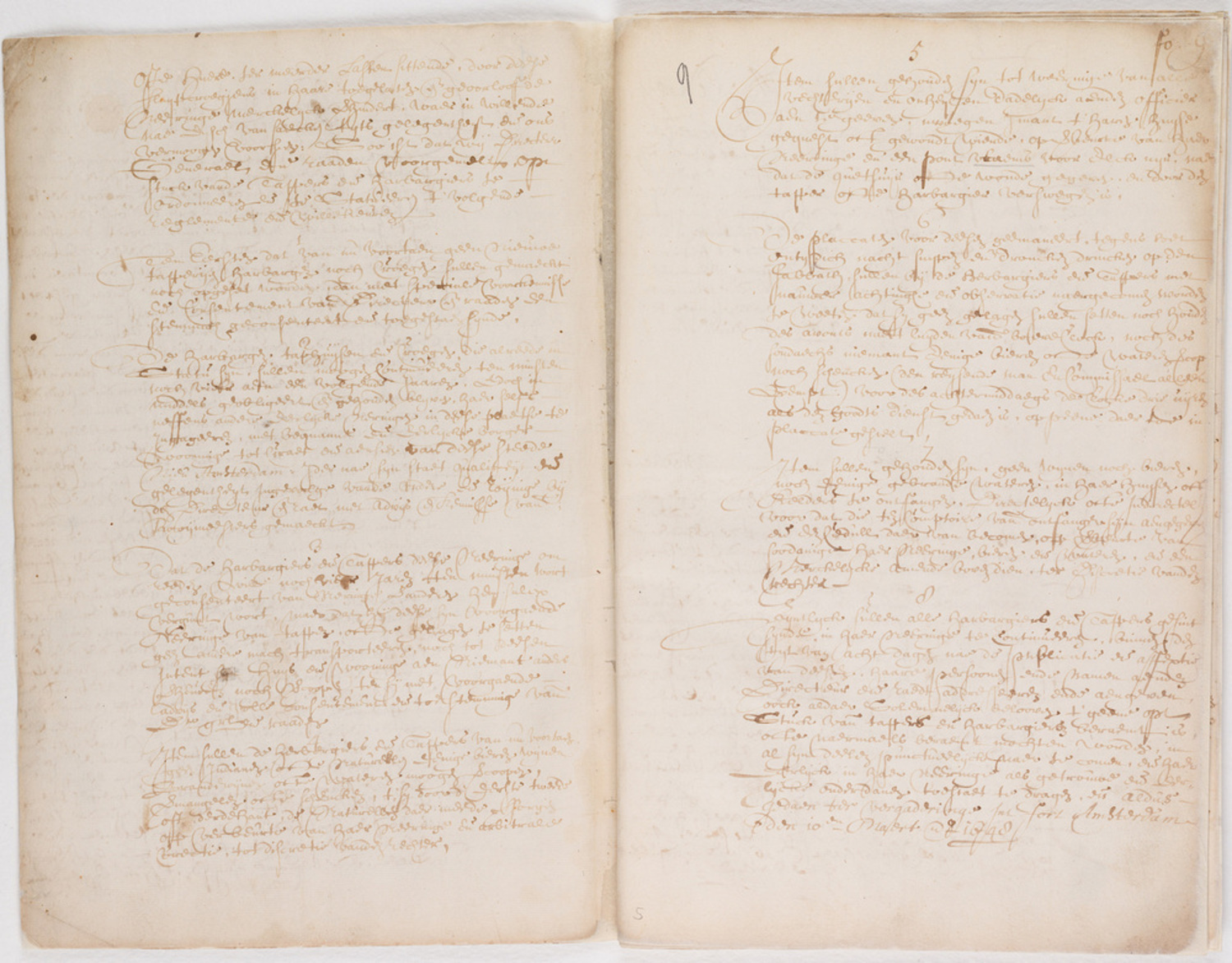Peter Stuyvesant, Director-General of New Amsterdam, dedicated a significant portion of the 1468 ordinance papers to rules for responsible drinking. Apparently drinking had gotten out of hand in the early days of the City, a tradition we proudly continue today. The rules state:
- "Henceforth no new taproom, tavern or inn shall be opened."
- "The taverns, taprooms and inns, already established, may continue for at least four consecutive years, but in the meantime the owners shall be obliged to engage in some other honest business at this place."
- "The tavern-keepers and tapsters are allowed to continue in their business for four years at least, but only on condition, that they shall not transfer their former occupation."
- "The tavern keepers and tapsters shall henceforth not be allowed, to sell or give beer, wine, brandy or strong waters to Indians or provide them with it by intermediaries."
- "To prevent all fighting and mishaps they shall daily report to the Officer, whether anybody has been hurt or wounded at their houses, under the penalty of forfeiting their business and a fine of one pound Flemish for every hour after the hurt or wound has been inflicted and been concealed by the tapster or tavern-keeper."
- "The orders, heretofore published against unseasonable night tippling and intemperate drinking on the Sabbath, shall be obeyed by the tavern-keepers and tapsters with close attention."
- "They shall be held, not to receive any beer or wine or distilled waters into their houses or cellars, directly or indirectly, before they have so reported at the office of the Receiver."
- "Finally, all tavern-keepers and tapsters, who intend to continue in their occupation, shall eight days after the publication hereof present themselves in person and give their names to the Director General and Council and there solemnly promise, that they will faithfully obey what rules have been or may be made.
To read more about the rules, see the Bowery Boys' writeup or read through the original documents if you can understand Renaissance-era Dutch.








